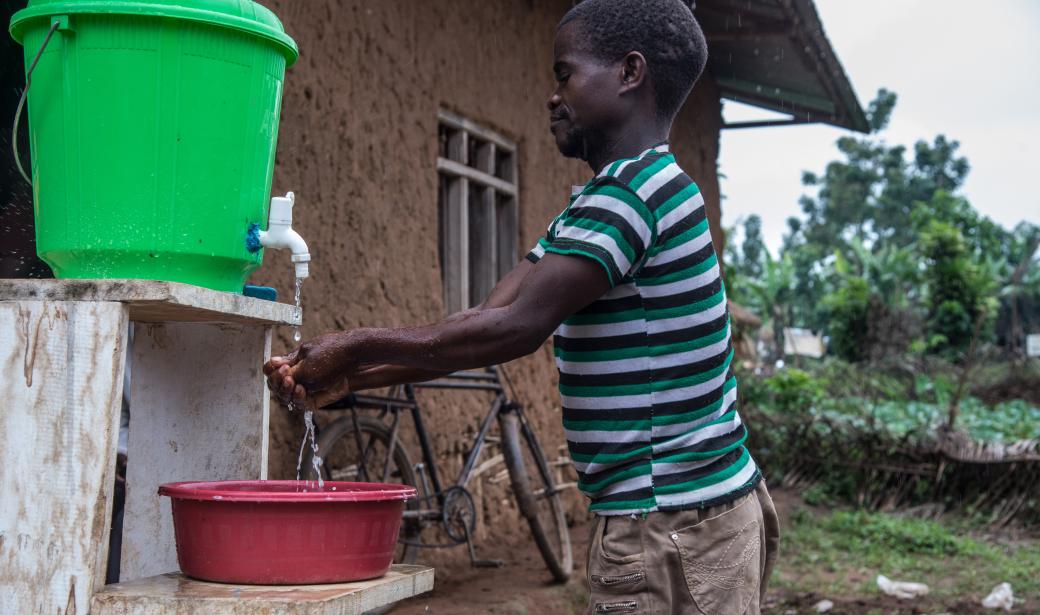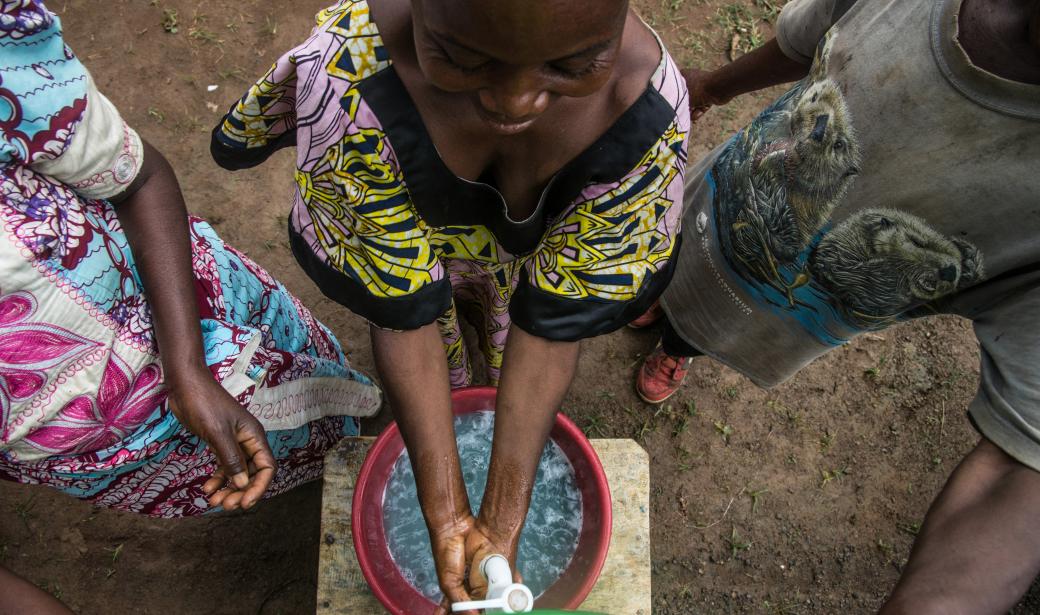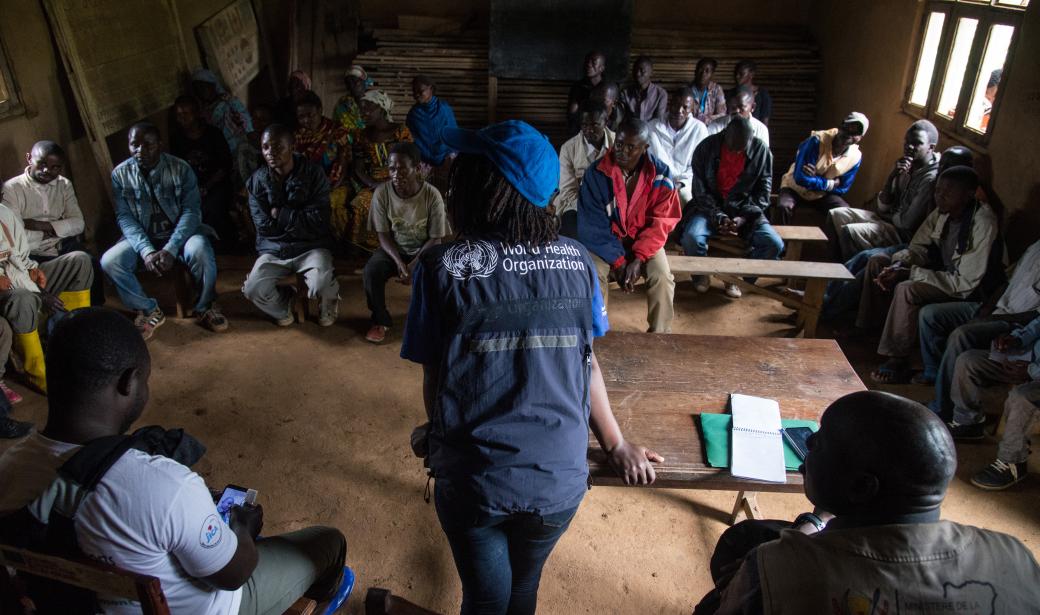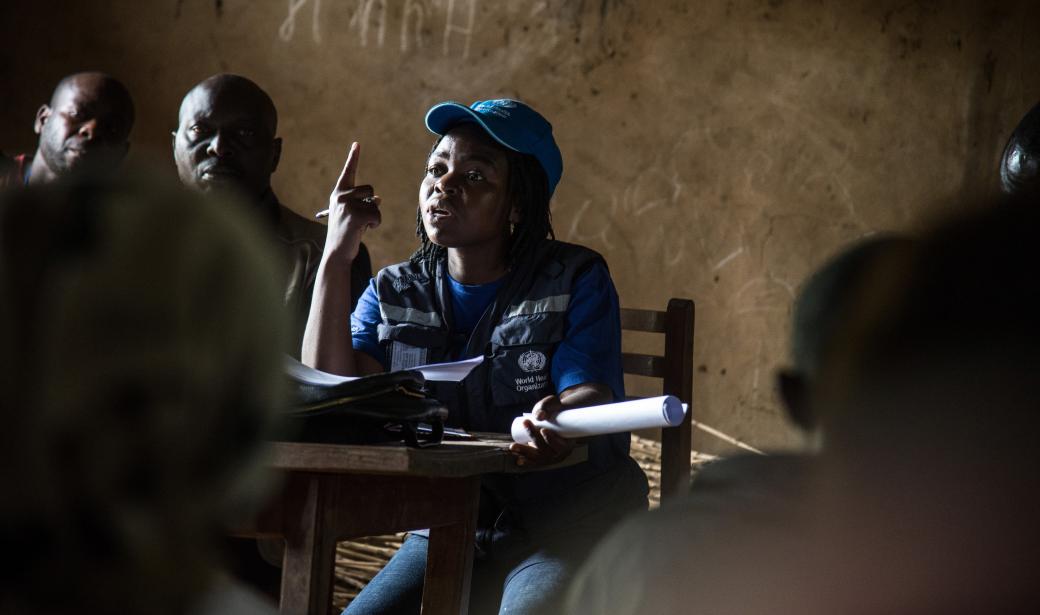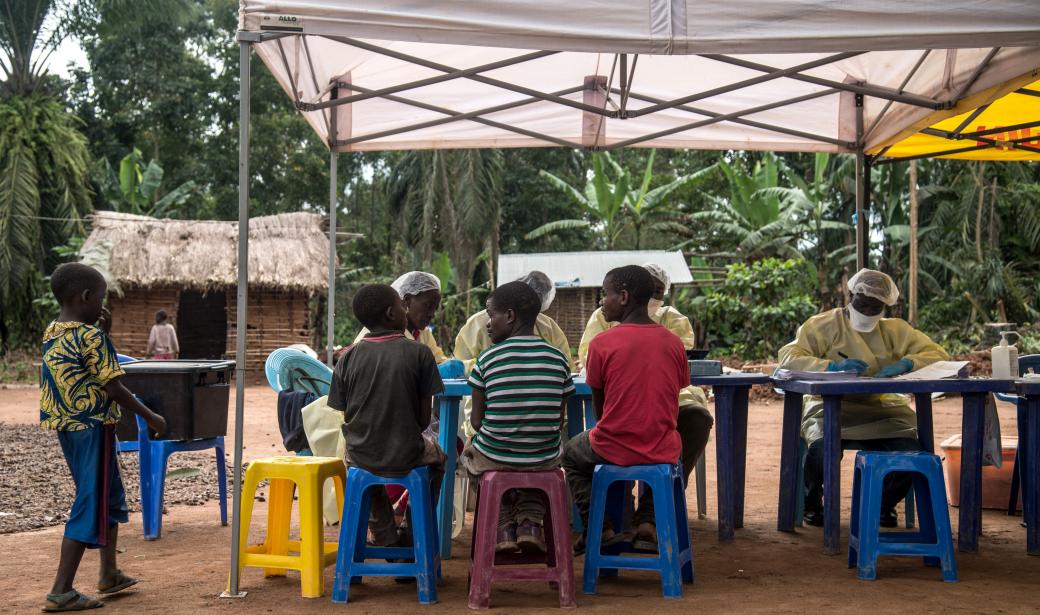Reaching out to all communities is vital for Ebola prevention. The Batwa people in the DRC are hunter-gatherers, who move around frequently and live in temporary camps in the forest. Their itinerant lifestyle and their outsider status keeps them away from health facilities and leaves them exposed to disease, and especially vulnerable to Ebola. WHO community engagement teams are working alongside the DRC Ministry of Health to ensure the Batwa people understand how to protect themselves from Ebola, and to encourage them to go to healthcare facilities at the first sign of any symptoms.
© Junior Diatezua Kannah
In Mangango, eastern DRC, a small community of Batwa people has finally agreed to have the Ebola vaccination, after months of persuasion from the WHO risk communication team and their partners in the community. Esther Mugeni is in her 80’s. She’s taking her grandson to be vaccinated. As a village elder, she’s a highly respected member of the community, and vaccinating her family set an example for others. “I think the vaccine is good for my grandson and for our health”, says Esther. “After all, he’s my grandson. He cried, but I wasn’t scared. I was vaccinated too. I’m very happy because my children and my grandsons have been vaccinated.”
© Junior Diatezua Kannah
Like others in her community, Esther was skeptical at first. She didn’t believe Batwa people could die from Ebola, she thought their traditional medicine could save them. Huguette Muluhirwa from the WHO risk communications team has been trying to persuade Esther and her community of the importance of getting vaccinated. “There was a lot of resistance here”, says Huguette. “The village chiefs had reservations about the vaccine. But we helped them to understand and we succeeded in persuading them to be vaccinated themselves, to convince the community.” The elders of the community were convinced thanks to the help of the local pastor, who agreed to be vaccinated before anyone else.
© Junior Diatezua Kannah
Hygiene, and especially hand washing, is crucial in preventing the spread of Ebola. WHO installed a hand washing station in the community. At first, the Batwa refused to speak about Ebola at all, so the risk communications team took an indirect approach. “We spoke to them first about washing their hands to prevent other illnesses, without speaking directly about Ebola”, says Huguette. “Then later, when we had the support of the pastor, we went to talk to them about Ebola”.
© Junior Diatezua Kannah
WHO brought a hand washing station to the Batwa camp in August, but it was November before the community trusted health workers enough to agree to talk about Ebola directly, and then to be vaccinated. In an area where people do not link hand washing to the spread of disease, WHO has been on a massive campaign to encourage better hand hygiene, to prevent not only Ebola, but many other diseases.
© Junior Diatezua Kannah
Huguette and a delegate from the health ministry held a dialogue with several communities from the same area, including the Batwa. They used the dialogue to learn why there was resistance amongst the people to be vaccinated, and to send people to Ebola treatment centres when they were sick. People were concerned that they would be rejected by their communities if they were treated in an Ebola treatment centre. They also said they had heard rumours that they wouldn’t be taken care of and given enough food in the treatment centres.
© Junior Diatezua Kannah
Huguette persuaded local leaders to accompany her on a visit to an Ebola treatment centre with community members, to see for themselves that the rumours weren’t true. “We took them to the Ebola treatment centre and they got to talk to sick people about the care they were getting”, says Huguette. She says the Batwa community face specific risks because of their lifestyle, which includes eating bushmeat from the forest, a common vector for Ebola. They also need to be careful when trading. “We advised them to be careful around visitors and around infected zones in the area, because people mix with each other through trade and farming.”
© Junior Diatezua Kannah
After four months of work from the risk communications team, the Batwa community finally agreed to be vaccinated against Ebola. The team showed them photos of Batwa communities in other parts of DRC being vaccinated against Ebola. This helped to persuade them that the vaccine was safe. Over 120 people were vaccinated as a result.
© Junior Diatezua Kannah
Everyone in the community gets a certificate to prove they’ve been vaccinated. They keep them all in their pastor’s house for safety because it’s more durable than their own homes, which are made of palm fronds. “The day of the vaccination they were very happy”, says Huguette Muluhirwa. The WHO risk communications team and their partners were pleased to see their months of work pay off. “Behavioural change is a process” says Huguette. “However long it takes, we don’t give up.”
For Additional Information or to Request Interviews, Please contact:
Collins Boakye-Agyemang
Communications and marketing officer
Tel: + 242 06 520 65 65 (WhatsApp)
Email: boakyeagyemangc [at] who.int





